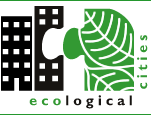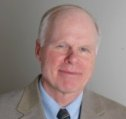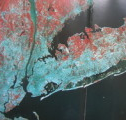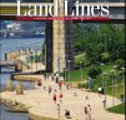
|
The Humane Metropolis |
||
The Humane Metropolis
|
|||

|
The Humane Metropolis explores the prospects for a more humane metropolis through a series of essays and case studies that consider why and how urban places can be made greener and more amenable. Its point of departure is the legacy of William H. Whyte (1917-1999), one of America's most admired urban thinkers. From his eyrie high above Manhattan in the offices of the Rockefeller Brothers Fund, Whyte laid the foundation for today's "smart growth" and "new urbanist" movements with books such as The Last Landscape (1968). His passion for improving the habitability of cities and suburbs is reflected in the diverse grassroots urban design and regreening strategies discussed in this volume.
Topics examined in this book include urban and regional greenspaces, urban ecological restoration, social equity, and green design. Some of the contributors are recognized academic experts, while others offer direct practical knowledge of particular problems and initiatives. The editor's introduction and epilogue set the individual chapters in a broader context and suggest how the strategies described, if widely replicated, may help create more humane urban environments.
In addition to Rutherford H. Platt, contributors to the volume include Carl Anthony, Thomas Balsley, Timothy Beatley, Eugenie L. Birch, Edward J. Blakely, Colin M. Cathcart, Steven E. Clemants, Christopher A. De Sousa, Steven N. Handel, Peter Harnik, Michael C. Houck, Jerold S. Kayden, Albert LaFarge, Andrew Light, Charles E. Little, Anne C. Lusk, Thalya Parilla, Deborah E. Popper, Frank J. Popper, Mary V. Rickel, Cynthia Rosenzweig, Robert L. Ryan, Laurin N. Sievert, Andrew G. Wiley-Schwartz, and Ann Louise Strong.
Included in the back of the book is a DVD of a 22-minute film created by Ted White, which serves as a companion to the text.
"Platt's essayists provide nourishment - like good bagels - to anybody taking a pause on a bench, in Holly Whyte's way, to consider the city as an evolving organism responsive to intelligent leadership."
Roger G. Kennedy, Director Emeritus, National Museum of American History
"All across North America truly public space is disappearing. The 'Exploding Metropolis' first anticipated by Whyte is upon us with a vengeance, and at a scale that even he could not have imagined. A dual crisis now confronts us: how can we recapture Whyte's concept of the civic realm while re-engineering our urban landscapes for sustainable future? The Humane Metropolis outlines the way, and shows us how we might all participate in its creation."
Patrick M. Condon, UBC James Taylor Chair in Landscape and Liveable Environments, Design Centre for Sustainability, University of British Columbia
"A powerful collection of both ideas about and practical data on approaches to help develop cities into people places. . . . The wide-ranging viewpoints and depth of scholarship will certainly make this a heralded and major contribution to the field."
Nancy L. Winter
"An important addition to the evolving literature and work in urban ecology, and an excellent contribution to the life and legacy of one of the twentieth century's finest humanists, intellectuals, and activists, William H. Whyte."
Harvey K. Flad, emeritus professor of geography, Vassar College
"The Humane Metropolis introduces a new generation to William H. Whyte's visionary ideas on the role of nature in the city, and outlines the steps we must take to strike a balance between humans and nature in America's 21st-century urban areas."
Robert D. Yaro, President, Regional Plan Association and Practice Professor, University of Pennsylvania
The Humane Metropolis™ is a trademark of Rutherford Platt


